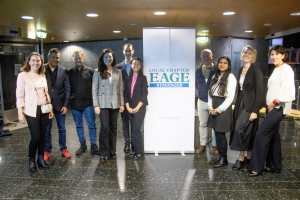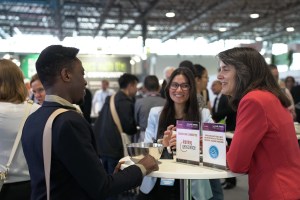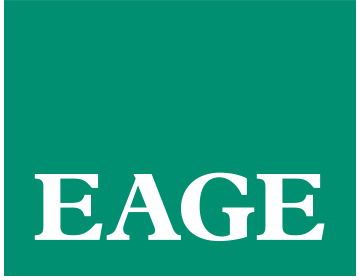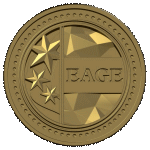With a New Year full of opportunities already calling for us, let us take a moment to look back at the success stories of our communities in 2023. Many of them are centered around cooperation and creating bridges across disciplines, people, and careers – and many are the result of hard work over a couple of years of transition.
Take Local Chapter Stavanger, for instance, which started in 2021 amidst the pandemic. After two years of operating online, the team was finally ready for a big reunion and celebrated the start of their journey with their first in-person meeting last month, which was a resounding success. We now look forward to working closely with our Local Chapters in the country – Oslo and Stavanger – to pave the way for a fantastic EAGE Annual 2024 in Norway.

In Vienna, our Special Interest Communities took the EAGE Annual 2023 experience one step further, setting the spotlight on the multiple career opportunities geoscientists and engineers have in a constantly evolving industry. Young Professionals emphasized how to capitalize on the multidisciplinarity of our field, while Women in Geoscience and Engineering discussed the importance of inclusive and diverse ‘together’ in tackling global issues, such as the energy transition.
Meantime the EAGE technical communities were busy hubs for their dedicated topics – from geohazards to geochemistry – and worked closely with the Association to develop new initiatives for members and dive into hot topics. The AI team, for example, challenged data science enthusiasts to explore the potential of Natural Language Processing in a very intense 2-day hackathon that proved the power of data analytics for geoscience using the abstracts of the EAGE Annual Conference as a dataset! Earlier this year, the Hydrogeophysics group launched a discussion on the future of near surface geophysics instrumentation engaging professionals from more than 20 countries to track common challenges and areas with room for improvement.
Are you interested in being part of one of our Special Interest Communities, Technical Communities or Local Chapter? Please click here.
On the other hand, the Decarbonization and Energy Transition Community joined forces with Elsevier, drawing attention to key transferable geoscience skills between the oil & gas and emerging renewables sectors. This topic has such a high relevance, that the DET group also worked together with the EAGE Education Committee in creating an interactive mapping tool that will make it easier for members to assess which skills they may need in the energy transition era. Stay tuned as the tool will be released soon!

Facilitating connections that enable knowledge sharing, career development and cooperation is at the core of what EAGE stands for. We hope you had an eventful year with our communities this year. If you are not connected with them yet, do not hesitate to reach out and find groups of peers that can support your professional journey. You are also always welcome to update your affiliations – with EAGE Circles, Local Chapters, Special Interest and Technical Communities – to help our offerings meet your needs and interests.






